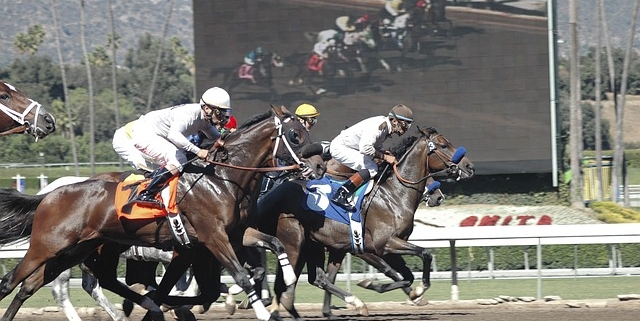INTERSECTION OF GAMBLING AND SPORTS BETTING
Sports and gambling have long shared a complex and mutually beneficial relationship for centuries. These two distinct industries have worked hand in hand for centuries, with punters betting on different sports events from horse races in ancient Rome to modern soccer games.
In recent years, the proliferation of online sports betting has brought these two markets even closer, despite many being concerned about the impact of betting on the integrity of sports. This article explores the relationship between sports and gambling, the potential benefits, the rise of sports betting, and the risks associated with this intersection.
The history of sports and gambling
The relationship between sports and gambling stretches back centuries. In ancient Rome, sports enthusiasts would bet on gladiator battles and chariot races hosted in arenas. During the medieval times, betting on jousting tournaments was a popular pastime.
In modern times, gambling on sports has increasingly become popular, with people betting on everything from horse racing to soccer, basketball, and other sports. This growth in popularity has given rise to new opportunities and challenges for sports and gambling. However, Jurisdictions like Vermont are yet to legalize sports gambling – for more information see here.
Despite the legal hurdle in many jurisdictions, the advent of innovative gambling platforms is allowing punters to effortlessly experience the thrill of betting on sports. As a result, the global sports betting market was valued at $81.03 billion in 2022 and it’s expected to hit $167.5 billion by 2030.
The growth of the sports betting market
The rise of the sports gambling market is attributable to factors like the proliferation of online bookmakers, the legalization of online sports betting in some jurisdictions, and the growing attraction towards sports.
In 2018, the United States Supreme Court overturned the federal ban on sports gambling, allowing different states to regulate and legalize the activity. Today, over 20 US states have legalized betting on sports, and the industry is set to keep expanding.
The popularity of the sports betting market isn’t only limited to the US as many countries have embraced the industry to increase their revenue basket. In 2021, Canada passed a bill to legalize betting on single-event sports across the country.
In Asia, betting on sports is also becoming a popular pastime, even in countries that haven’t legalized the activity like Japan and China. However, countries like the Philippines and Singapore have developed legal and regulated sports betting industries for their residents.
How does gambling affect the integrity of sports?
While the intersection between gambling and sports has been mutually beneficial to both industries, there are growing concerns that it might impact the integrity of sports. Some industry experts still fear that if many people are gambling on sports events, they are more likely to influence the results. That can be achieved through match-fixing, where the match officials or players intentionally manipulate the results of a match to benefit punters.
Match fixing can also be done by sharing insider information that gives a team or players an unfair advantage over their opponent to benefit the punters. To avoid these risks, many sports franchises have set strict rules related to betting and have partnered with reputable sportsbooks to monitor suspicious activity. Additionally, modern tech has made it easy to detect potential insider trading and match-fixing cases.
Besides match-fixing, corruption remains a major cause of concern for many people in the sports market. A recent study shows that approximately 1% of international athletes are involved in match-fixing and corruption activities related to betting. That highlights the need for continued vigilance to stop corruption in sports.
Potential benefits of the intersection between sports and gambling
Despite the risks, the convergence of sports and gambling can yield numerous benefits for both industries. For one, this confluence can generate revenue for sports franchises and the local economies. In fact, sports betting has proven to be a lucrative industry that can generate millions of dollars in fees and taxes. This revenue can be used to fund infrastructure projects and support other public services.
Gambling can also increase people’s interest in sports since people are more inclined to watch games when they are financially invested in the outcome. The heightened interest in sports leads to a boost in ticket sales, TV ratings, and sponsorship deals, which positively impacts the sports market. A recent study also shows sports betting enhances fan engagement as they become more invested in the game’s outcome.
Potential risks of this convergence
The intersection of sports and gambling can also lead to several risks. For starters, betting on sports can lead to problem gambling, which can have devastating effects on families and individuals. Additionally, the increased focus on sports betting instead of gameplay can diminish the joy of watching games for the sake of entertainment.
Conclusion
The intersection of sports and gambling has several benefits including the generation of revenue for sports franchises and the heightened interest in sports. However, individuals, lawmakers, and sports organizations need to follow the industry’s best practices to safeguard the integrity of sports. That includes implementing strict regulations to prevent corruption in sports and partnering with reputable betting companies to track any suspicious activity.



